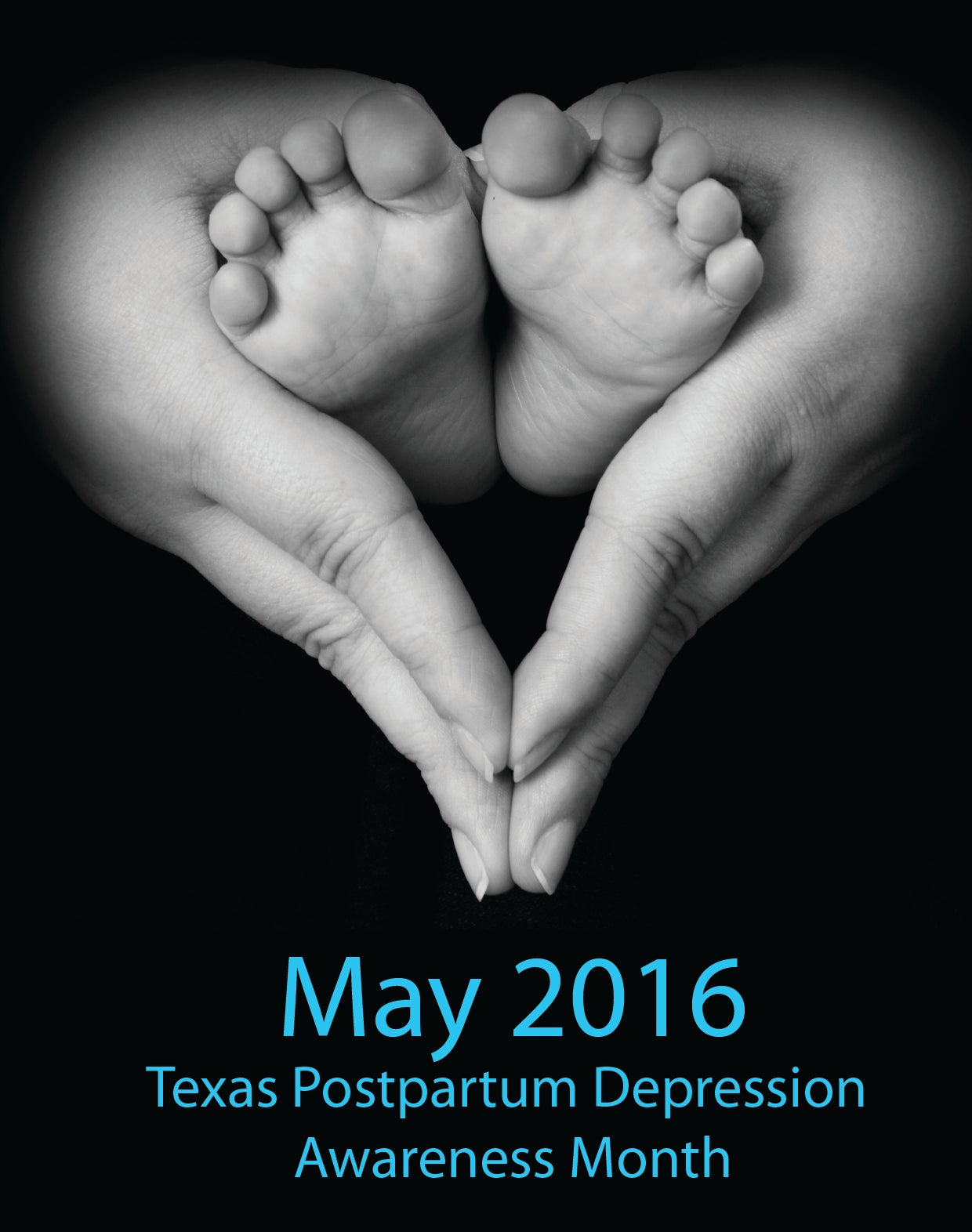Advocates, mothers laud passage of HB 2079 Texas’ first Postpartum Depression Awareness Observance
Published 11:24 am Wednesday, May 4, 2016

- Courtesy photo
Special to The Leader
HOUSTON— A mother’s mental health is critical to the physical, mental, and emotional wellbeing of herself and her children. For the first time this May, advocates across the Lone Star State are raising public awareness on the serious impact of postpartum depression (PPD) on the safety and healthy development of our state’s mothers, children and families. House Bill 2079, authored by Rep. Senfronia Thompson (D-Houston), passed by Texas’ lawmakers during the 84th Legislative Session deems May as Postpartum Depression Awareness Month.
Postpartum depression is the most common complication of childbirth. It is a serious illness that affects the quality of life of approximately 1 in 7 women. Research shows, a woman is at the highest risk in her lifetime of developing a new mental illness in the first year after a baby is born. At least 15 percent of new mothers experience significant postpartum mood disorders and many more report important difficulties in coping and adjusting.
“Beginning this May, mental health advocates and supporters are encouraging everyone to learn the signs, ask for help if needed, address symptoms early, and know the appropriate course of action to keep a mother and her child well,” said Susan Fordice, president and CEO of Mental Health America of Greater Houston. “Mental health conditions like postpartum depression should be treated before they reach a crisis point.”
“When we think about cancer, heart disease, or diabetes, we don’t wait years to treat them,” said Sherry Duson, founding member of the Yates Children Memorial Fund Advisory Committee at Mental Health America of Greater Houston and director of The Center for Postpartum Family Health. “We start before crisis with prevention. We should do the same for mothers who are dealing with a serious mental illness like postpartum depression.”
PPD is different from the “baby blues,” a term for the temporary sadness that can hit women right after birth for a few days or a few weeks. PPD lasts for months and bears a stigma that makes it more difficult for mothers to sometimes choose to get care. With postpartum depression, a mother may experience feelings of extreme sadness and anxiety, which may interfere with her ability to care for herself or her family.
Jerrie Amos of Care Net Pregnancy Center of Houston shares, “family members and friends may be the first to recognize symptoms of postpartum depression in a new mother, and can encourage her to talk with a health care provider, offer emotional support, and assist with daily tasks such as caring for the baby or the home.”
Other signs of a mother experiencing PPD could include:
- Feeling hopeless, empty, or overwhelmed
- Crying more often than usual or for no apparent reason
- Worrying or feeling overly anxious
- Feeling moody, irritable, or restless
- Oversleeping, or being unable to sleep even when her baby is asleep
- Having trouble concentrating, remembering details, and making decisions
- Experiencing anger or rage
- Losing interest in activities that are usually enjoyable
- Suffering from physical aches and pains, including frequent headaches, stomach problems, and muscle pain
- Eating too little or too much
- Withdrawing from or avoiding friends and family
- Having trouble bonding or forming an emotional attachment with her baby
- Persistently doubting her ability to care for her baby
- Thinking about harming herself or her baby
“Women of every culture, age, income level and race can experience the impact of postpartum depression,” said Tiffany Ross, manager of Education and Training at Mental Health America of Greater Houston.
Only a mental health or health care provider can diagnose a woman with postpartum depression. Symptoms of this condition are broad and may vary between women, and a health care provider can help a woman figure out whether the symptoms she is feeling are due to postpartum depression or something else. A woman who experiences any of these symptoms should seek care immediately.
“The exact causes of postpartum depression are unknown and cases often go underreported, but raising awareness about the causes and symptoms of postpartum depression can help in the prevention and treatment,” said Duson. “Sixty to seventy per cent of women with a serious postpartum mood disorder have no previous history to alert them, so the illness takes them and their partners and families by surprise, often at a time when everyone expects a new baby to bring happiness into the family.”
This is not our state’s first effort to improve the awareness of postpartum depression. In 2003, around the time of the tragic Andrea Yates case, the legislature passed HB 341 which requires physicians, midwives, hospitals and birthing centers who provide prenatal care to a pregnant woman during gestation or at delivery to provide the woman with postpartum depression information and a current resource list of professional organizations that provide postpartum counseling and assistance to parents.
Through grassroots efforts and partnerships with hospitals, clinics, primary care and mental health care, faith communities and others, YCMF has distributed nearly one million copies of the free brochure, “Your Emotions After Delivery,” in English, Spanish and Vietnamese since 2003.
“The Yates Children Memorial Fund Advisory Committee (YCMF) at Mental Health America of Greater Houston hosts a variety of awareness events, trainings, educational workshops and seminars taught by some of the state’s leading mental health professionals to help educate the public, mental health and primary care providers who take care of mothers and their babies,” said Mary Parnham, founding member and chair of YCMF. “Through awareness and resources we are working to change the stigma of having postpartum depression through education which will make it easier for mothers to find help.”
“Our programs connect mothers with affordable mental health treatment and in-home care, and our website and trainings offer essential information on perinatal mood disorders to professionals and the community” said Katie Astoria, board president of Pregnancy and Postpartum Health Alliance of Texas (PPHA). “PPHA is committed to promoting awareness, providing education and training, and connecting mothers to necessary mental health resources for prevention and treatment of perinatal mood disorders.”
For more information about Postpartum Depression and other perinatal mental health concerns, contact the following organizations for information or treatment resources:
- Mental Health America of Greater Houston: www.mhahouston.org/womens-mental-health/
- The Center for Postpartum Family Health: www.cpfh.org
- Pregnancy and Postpartum Health Alliance of Texas: www.pphatx.org
- Care Net Pregnancy Center of Houston: www.houstonpregnancy.com
- Pregnancy and Postpartum Depression Support Group: The Woman’s Hospital of Texas www.womanshospital.com/service/patient-education
- Mother to Mother: A Free Support Group for Pregnancy and Postpartum Depression – Texas Children’s Hospital Pavilion for Women: 832-826-5281
- Postpartum Support International: www.postpartum.net
- Postpartum Education for Parents: www.sbpep.org




